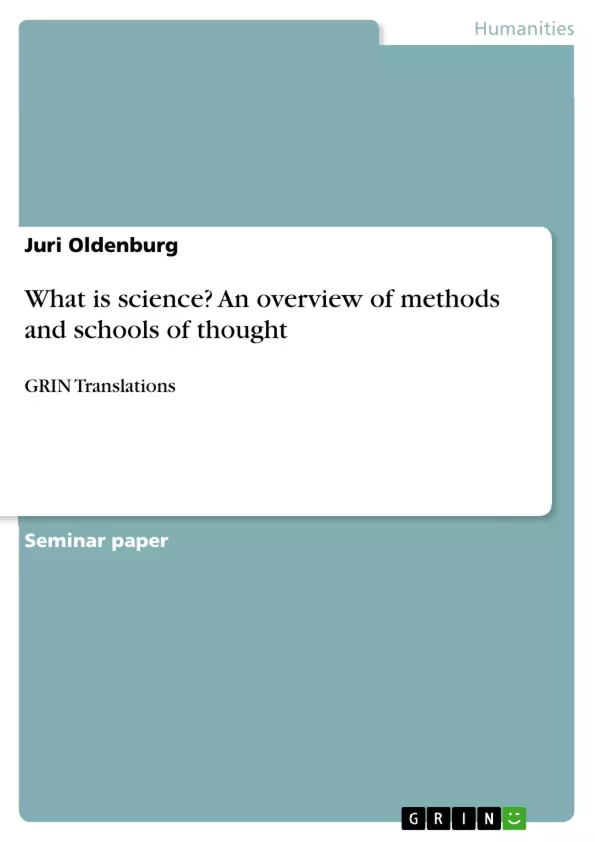This text was translated with the help of AI and reviewed by the GRIN editorial team.
This term paper deals with the question "What is science?" Even if it takes away some of the tension for the reader, there is still no clear answer to this inconspicuous question. But how is that possible? In order to understand this, this work will attempt to shed some more light on the topic.
For this purpose, the existing literature is reviewed. At the beginning, an attempt is made to define the term "science". In addition, the nature of science is examined and why there is no "one science". The two schools of thought that led to the positivism dispute are discussed in more detail. In addition, some boundaries that lie in the field of science are also presented. Finally, an outlook is given on possible developments in the field of science. It should also be noted that given the wealth of literature available on this topic, it is not even remotely possible to take all available approaches into account.
Inhaltsverzeichnis (Table of Contents)
- Problem definition - What is science?
- Definition science
- Knowledge - What we think we believe?
- The essence of science
- Classification of the sciences
- Methods of science
- Quantitative methods
- Qualitative methods
- Schools of Thought of Science
- Critical Rationalism by Karl Popper
- Critical Theory of the Frankfurt School
- Positivism controversy
- Science Controversy
- Limits of Science - What Can We Know?
Zielsetzung und Themenschwerpunkte (Objectives and Key Themes)
This term paper aims to explore the question "What is science?" by analyzing the concept of science, its essence, different schools of thought, and the inherent controversies and limitations. The paper seeks to provide a comprehensive understanding of science by examining key definitions, methodologies, and historical perspectives.
- Defining "science" and its evolving nature
- The nature and scope of scientific knowledge
- Methods and criteria used in scientific research
- Key schools of thought and their contributions to the understanding of science
- Controversies and limitations surrounding scientific inquiry
Zusammenfassung der Kapitel (Chapter Summaries)
The paper starts by defining the term "science" and acknowledging the ongoing debate surrounding its meaning. It then delves into the concept of "knowledge" and its relationship to science, exploring the historical tension between knowledge and faith. The essence of science is examined, focusing on the importance of objectivity and reliability in scientific methods. The paper also discusses the classification of sciences and explores the different methods employed in scientific research.
The paper then explores three key schools of thought in science: Critical Rationalism, Critical Theory, and the Positivism controversy. Each section delves into the key contributions of each school, highlighting their distinct perspectives on the nature and purpose of science.
The paper concludes by discussing the limitations of science, highlighting the challenges and constraints inherent in scientific inquiry. This section also provides an outlook on the future of science and its potential developments.
Schlüsselwörter (Keywords)
This term paper focuses on key concepts such as science, knowledge, objectivity, reliability, scientific methods, schools of thought, positivism controversy, and limitations of science.
- Arbeit zitieren
- Juri Oldenburg (Autor:in), 2018, What is science? An overview of methods and schools of thought, München, GRIN Verlag, https://www.hausarbeiten.de/document/1473875


